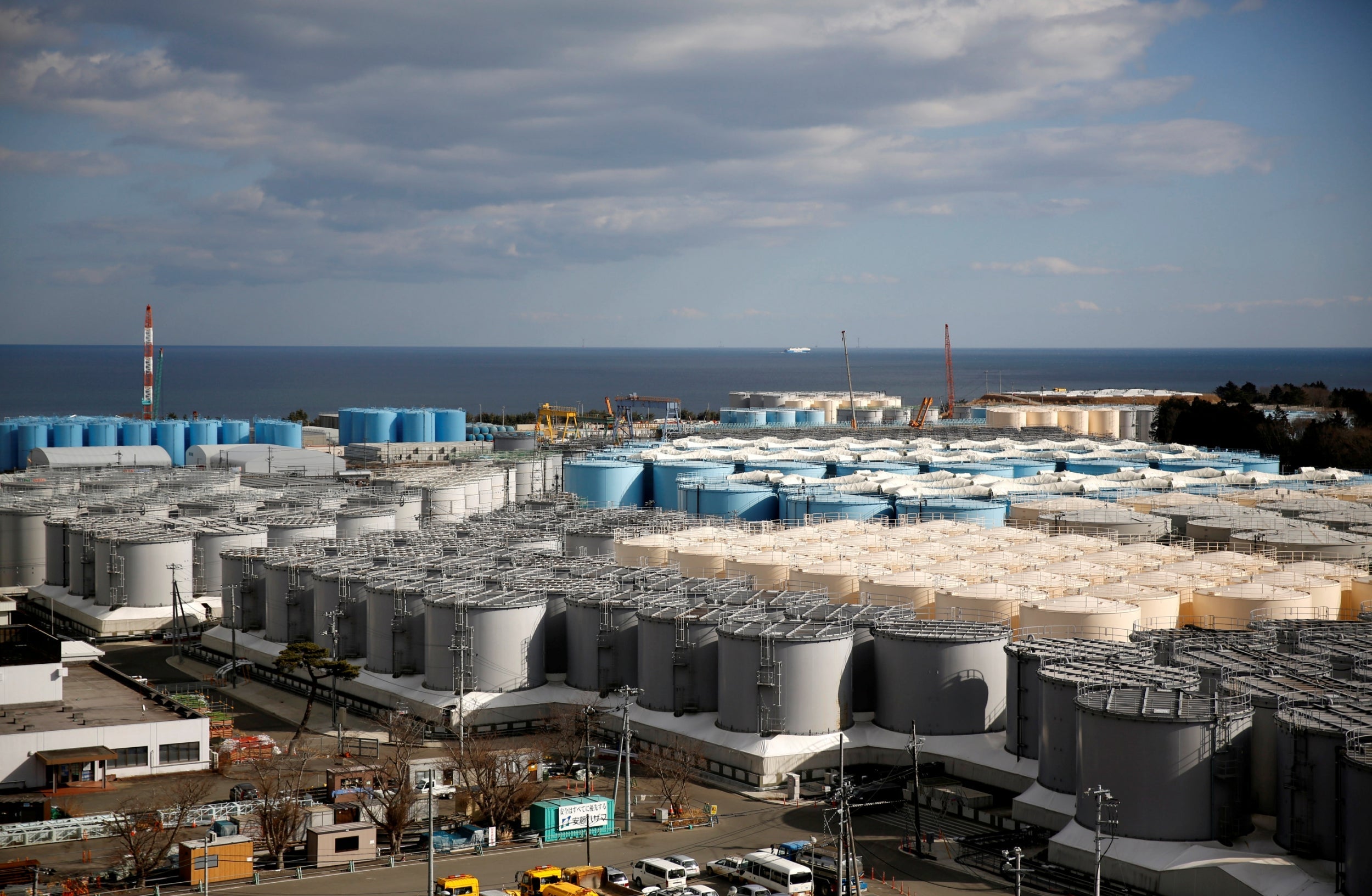Japan to dump radioactive water from Fukushima nuclear disaster into Pacific, minister says
'The only option will be to drain it into the sea and dilute it,' says Japan's environment minister

Your support helps us to tell the story
From reproductive rights to climate change to Big Tech, The Independent is on the ground when the story is developing. Whether it's investigating the financials of Elon Musk's pro-Trump PAC or producing our latest documentary, 'The A Word', which shines a light on the American women fighting for reproductive rights, we know how important it is to parse out the facts from the messaging.
At such a critical moment in US history, we need reporters on the ground. Your donation allows us to keep sending journalists to speak to both sides of the story.
The Independent is trusted by Americans across the entire political spectrum. And unlike many other quality news outlets, we choose not to lock Americans out of our reporting and analysis with paywalls. We believe quality journalism should be available to everyone, paid for by those who can afford it.
Your support makes all the difference.Radioactive water from Japan’s damaged Fukushima nuclear power plant will soon have to be dumped into the Pacific Ocean, says the nation’s environment minister.
Tokyo Electric [Tepco] is running out of room to store the more than one million tonnes of contaminated water that has been collected from the plant, which was crippled by an earthquake and tsunami in 2011.
The utility says it will run out of room to store the water by 2022.
Japan’s environment minister Yoshiaki Harada told a news briefing in Tokyo: "The only option will be to drain it into the sea and dilute it.
"The whole of the government will discuss this, but I would like to offer my simple opinion."
Harada did not say how much water would need to be dumped into the ocean.
The government is awaiting a report from an expert panel before making a final decision on how to dispose of the radioactive water.
Japan's Chief Cabinet Secretary Yoshihide Suga, in a separate press briefing, described Harada's comments as "his personal opinion".
Tepco was not in a position to decide what to do but would follow the policy once the government made a decision, a spokesman for the utility said.
Any green light from the government to dump the waste into the sea would anger neighbours such as South Korea, which summoned a senior Japanese embassy official last month to explain how the Fukushima water would be dealt with.
"We are just hoping to hear more details of the discussions that are under way in Tokyo so that there won’t be a surprise announcement,” a South Korean diplomat told Reuters, requesting anonymity due to the sensitivity of bilateral ties.
South Korea's foreign ministry said in a statement said it had asked Japan "to take a wise and prudent decision on the issue".
Relations between the East Asian nations are already frosty following a dispute over compensation for Koreans forced to work in Japanese factories in World War Two.
Coastal nuclear plants commonly dump into the ocean water that contains tritium, an isotope of hydrogen that is hard to separate and is considered to be relatively harmless.
Tepco, which also faces opposition from fishermen, admitted last year that the water in its tanks still contained contaminants beside tritium.
"The government must commit to the only environmentally acceptable option for managing this water crisis which is long term storage and processing to remove radioactivity,” Shaun Burnie, senior nuclear specialist with Greenpeace Germany, said in an email to Reuters.
Additional reporting by Reuters
Join our commenting forum
Join thought-provoking conversations, follow other Independent readers and see their replies
Comments